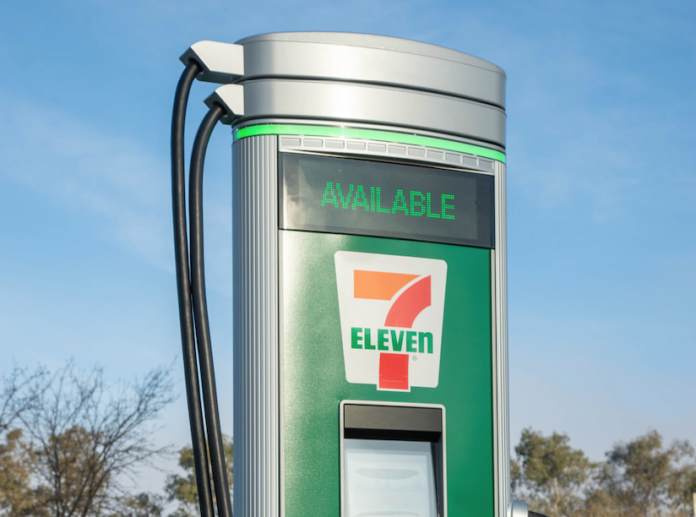7-Eleven Inc. says it is building at least 500 direct current fast-charging (DCFC) ports at 250 select U.S. and Canada stores by the end of 2022.
Owned and operated by 7-Eleven, the new DCFC ports will increase charging options for electric vehicle (EV) drivers by adding to the company’s existing 22 charging stations located at 14 stores in four states. Once this expansion is complete, the company will have one of the largest and most compatible fast-charging systems of any retailer in the U.S.
“7-Eleven has always been a pioneer in new ideas and technology to better serve the needs of our customers,” says Joe DePinto, president and CEO of 7-Eleven. “Adding 500 charging ports at 250 7-Eleven stores will make EV charging more convenient and help accelerate broader adoption of EVs and alternative fuels. We are committed to the communities we serve and to working toward a more sustainable future.”
7-Eleven set ambitious and measurable sustainability goals in 2016 as part of the company’s commitment to operating a globally sustainable business. To help address the challenge created by climate change, the company planned to achieve a 20% reduction of CO2 emissions from its stores by 2027. Instead, 7-Eleven reached this 20% reduction goal in 2019, eight years ahead of schedule.
7-Eleven says it is improving its sustainability by seeking renewable energy solutions for its stores across the country. The company is purchasing 100% wind energy for 800+ Texas stores and 300+ Illinois stores. Additional renewable energy purchases include 150 stores using hydropower in Virginia, as well as 300 Florida stores powered by solar energy. As a sustainable retailer, the company will continue to refine and formalize its environmental, social and governance (ESG) commitments, while engaging with key stakeholders and establishing long-term objectives.
Additional details regarding 7-Eleven’s ESG strategy will be announced later this year. To learn more about the company’s sustainability efforts, click here.





